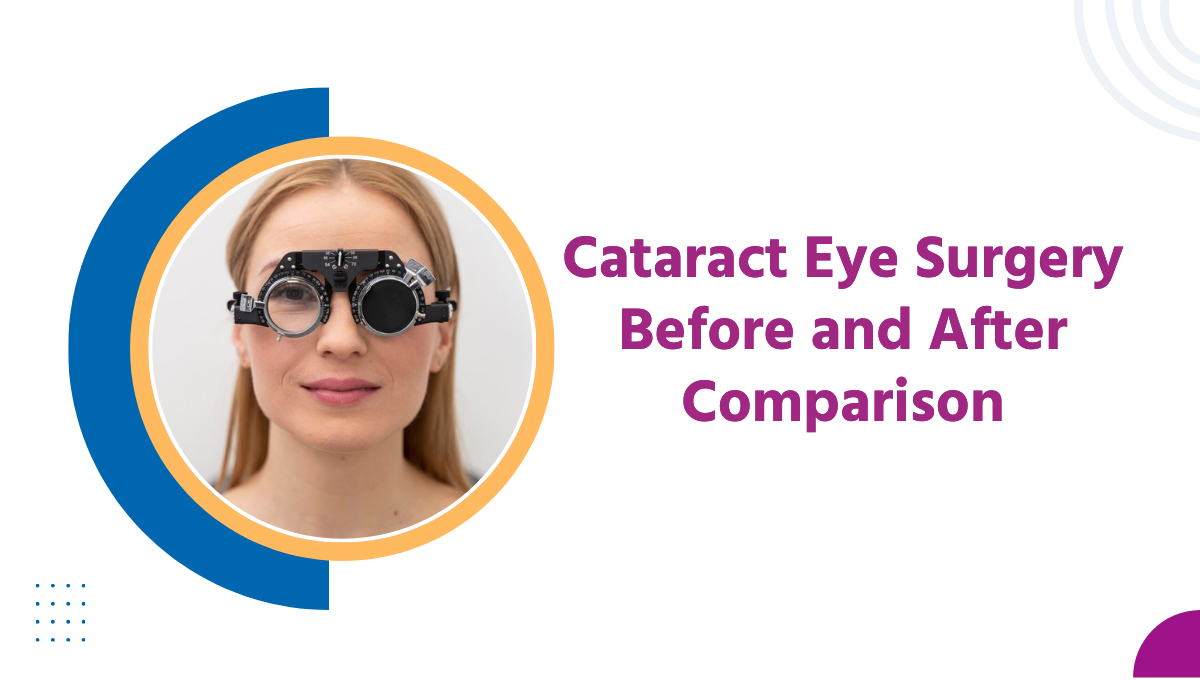Cataracts are a common eye condition, especially among older adults, where the eye’s natural lens becomes cloudy, leading to blurred vision. If left untreated, cataracts can severely impair eyesight. Fortunately, cataract surgery is a safe and effective solution to restore clear vision.
In this comprehensive guide, we’ll explore everything you need to know about cataract eye surgery from symptoms and diagnosis to the surgical procedure, recovery, and post-operative care. Whether you’re considering surgery for yourself or a loved one, this article will provide valuable insights to help you make an informed decision.
What Is a Cataract?
A cataract occurs when proteins in the eye’s lens break down and clump together, causing cloudiness. This prevents light from passing clearly through the lens, leading to:
- Blurry or foggy vision
- Difficulty seeing at night
- Sensitivity to light and glare
- Fading of colors
- Frequent changes in eyeglass prescription
While aging is the most common cause, other factors like diabetes, smoking, prolonged UV exposure, and eye injuries can also contribute to cataract formation.
If you experience these symptoms, visiting an eye centre in Dehli for a thorough examination is essential. Early detection can help prevent severe vision loss.
Types of Cataract Surgery
There are two main types of cataract surgery:
1. Phacoemulsification (Phaco Surgery)
- A small incision is made in the cornea.
- An ultrasonic probe breaks the cloudy lens into tiny pieces.
- The fragments are suctioned out, and an artificial intraocular lens (IOL) is implanted.
- Stitches are usually not required.
2. Extracapsular Cataract Extraction (ECCE)
- A larger incision is made to remove the cloudy lens in one piece.
- An IOL is placed in the same position.
- This method is used for advanced cataracts where phacoemulsification isn’t suitable.
Both procedures are highly effective, and your surgeon will recommend the best option based on your eye health.
Preparing for Cataract Surgery
Before surgery, your eye doctor will conduct several tests, including:
- Visual Acuity Test – Measures how well you see at different distances.
- Slit-Lamp Examination – Examines the cornea, iris, and lens under magnification.
- Retinal Exam – Checks for other eye conditions like glaucoma or macular degeneration.
You may be advised to:
- Stop wearing contact lenses a few days before surgery.
- Avoid eating or drinking before the procedure (if under anesthesia).
- Arrange for someone to drive you home post-surgery.
The Cataract Surgery Procedure
Cataract surgery is typically an outpatient procedure lasting 15-30 minutes. Here’s what happens:
- Anesthesia – Numbing eye drops or a mild sedative is given to keep you comfortable.
- Lens Removal – The surgeon removes the cloudy lens using phacoemulsification or ECCE.
- IOL Implantation – A clear artificial lens replaces the natural lens.
- Recovery – You’ll rest briefly before going home the same day.
Most patients notice improved vision within a few days.
Recovery and Post-Operative Care
Proper aftercare ensures a smooth recovery:
- Use prescribed eye drops to prevent infection and inflammation.
- Avoid rubbing your eyes for at least a week.
- Wear sunglasses outdoors to protect from bright light.
- Skip strenuous activities for a few weeks.
- Attend follow-up visits to monitor healing.
Full recovery usually takes 4-6 weeks. If you experience severe pain or sudden vision loss, contact your doctor immediately.
Risks and Complications
While cataract surgery is generally safe, potential risks include:
- Infection or swelling
- Retinal detachment
- Dislocation of the IOL
- Secondary cataract (posterior capsule opacification)
Choosing an experienced surgeon minimizes these risks.
Cost of Cataract Surgery in India
The cost varies based on:
-
Type of IOL (monofocal, multifocal, toric)
-
Hospital facilities
-
Surgeon’s expertise
On average, cataract surgery costs between ₹20,000 to ₹1,00,000 per eye. Many insurance plans and government schemes (like Ayushman Bharat) cover part of the expense.
Why Choose an Experienced Eye Surgeon?
A skilled surgeon ensures:
✅ Precision in lens removal and IOL placement.
✅ Minimal risk of complications.
✅ Faster recovery with optimal results.
If you’re seeking the best eye care in Dehli, research hospitals with advanced technology and positive patient reviews.
Conclusion
Cataract surgery is a life-changing procedure that restores clear vision and improves quality of life. With advancements in medical technology, the surgery is safer and more effective than ever. If you or a loved one is experiencing cataract symptoms, consult an eye specialist promptly.
Early treatment ensures better outcomes, so don’t delay—schedule an eye exam today!
